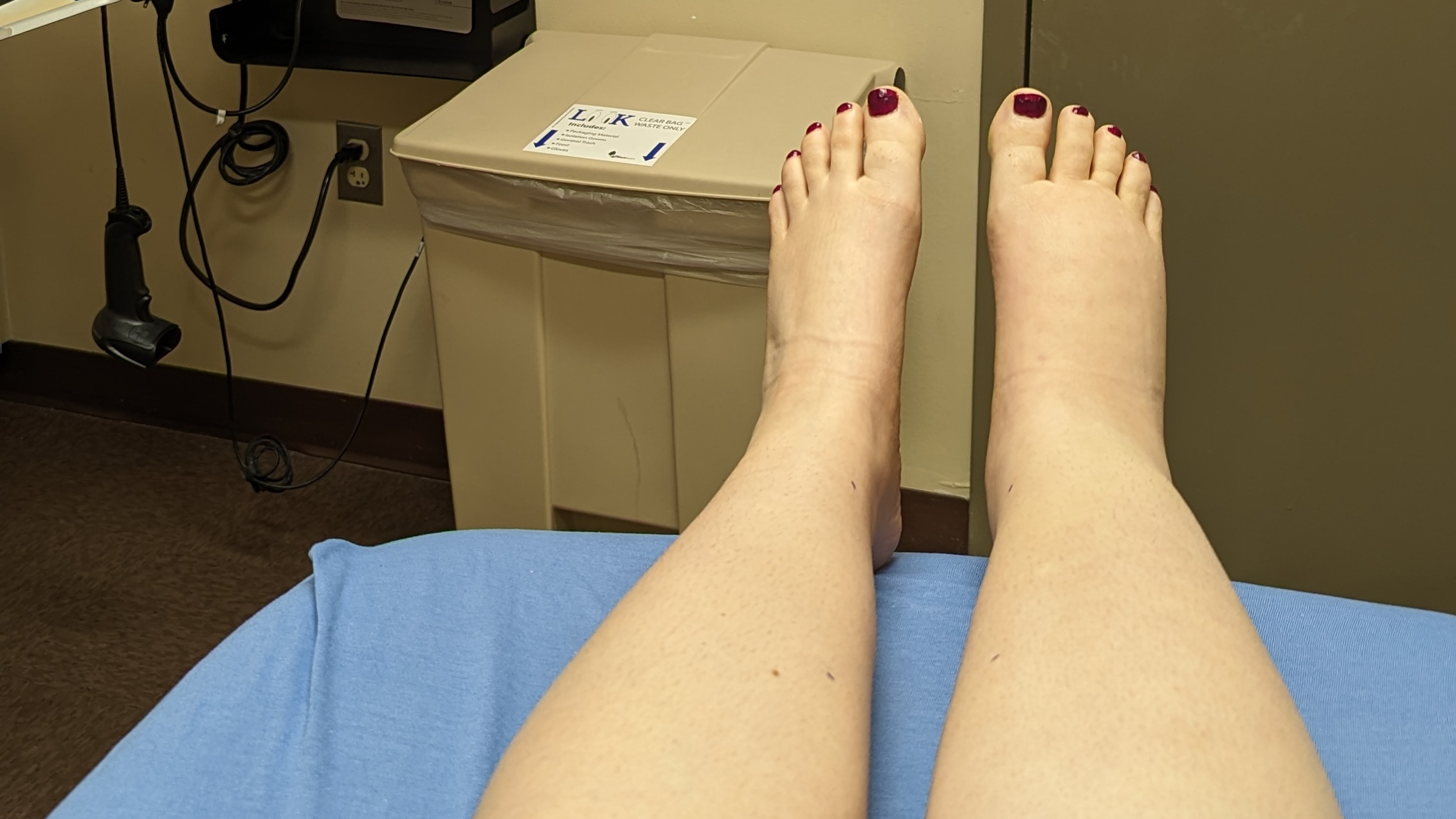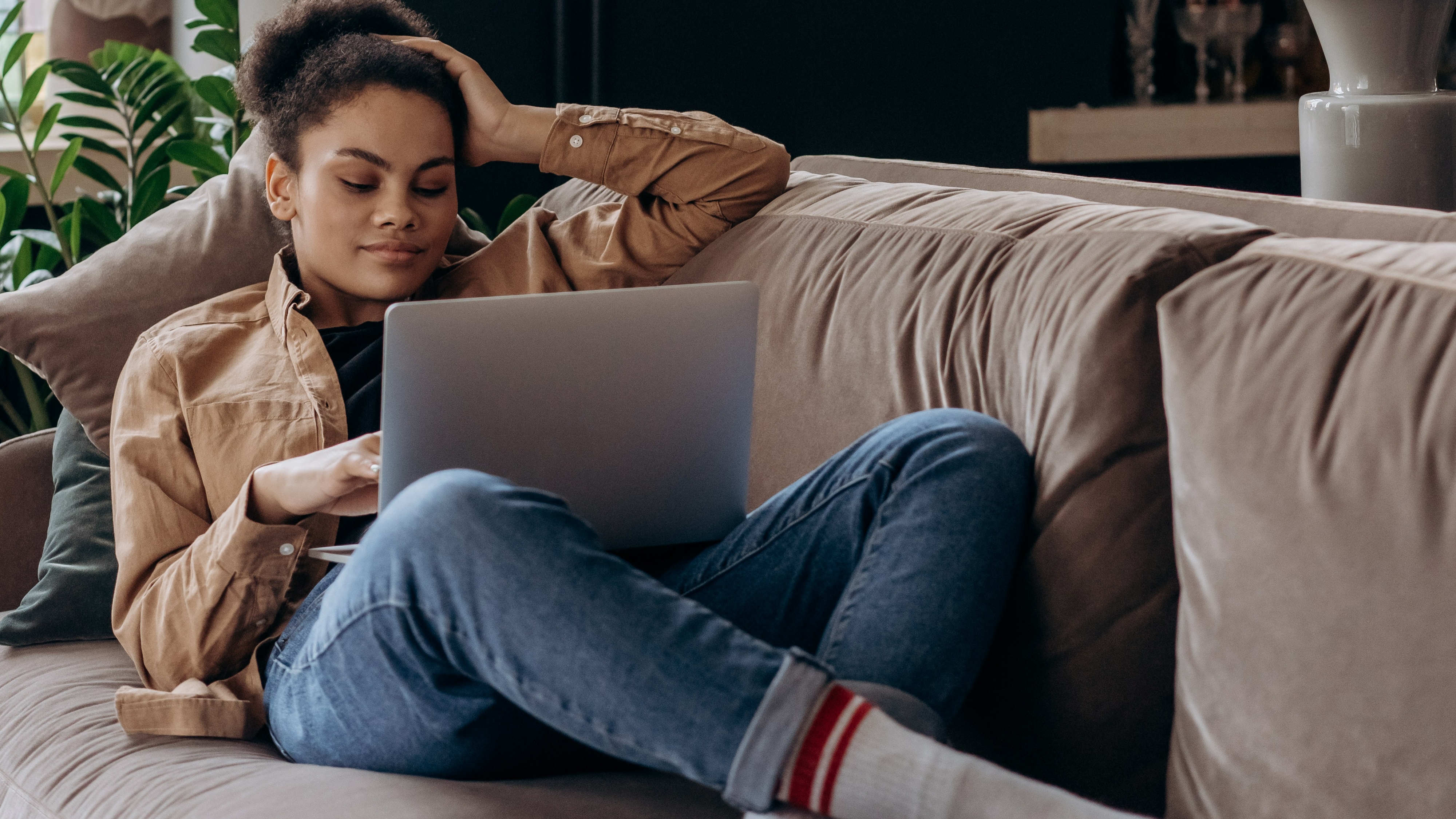Canadian lymphie Omar has lymphedema in both his legs and one arm.
“It’s a very embarrassing disease, not mainly because of how it looks but because – with all due respect – everywhere I go, it’s always women.”
Omar’s entire support system is mostly female: from his garment fitter and manual lymphatic drainage massage therapist to his Facebook support groups and lymphedema forums.
“I have nothing against women as I learn from them a lot,” Omar explained. “But I do feel so alone that once I see a man post [online], I feel some hope!”
What Omar described is very much the impetus for my wanting to do this project. Over the years, I’ve met men both in person and online who’ve frequently expressed the same feelings of isolation as male patients within a female-dominated community.
This can create a vicious cycle, because the less men talk about their lymphedema experience, the less visible they are. And then that lack of visibility dissuades more men from coming forward, and on and on it goes.
Men with lymphedema need support, not just from the medical and patient communities at large, but also from each other. Otherwise, they’re just ships passing in the night.
“Men never talk about any pain or physiological burdens ever,” Omar said. “They only talk about working out and exercising at the gym. It’s like manhood is against complaining.”
With a twinge of regret, Omar added: “I think that’s how I think, too.”
Difficulty finding care
55-year-old Micke has had lymphedema since he was thirteen.
“It took twenty years before I met a doctor who really could handle this disease,” he said. “Before that, everyone said that it’s a disease older ladies get. And there was nothing to do. No treatment available.”
When he finally found a lymphedema specialist, Micke underwent a week of intensive care. He was the only man at the clinic – the rest were female cancer patients.
“I did not feel seen or heard in the context,” he said. “I was a man, so there was no major concern.”
Being a man with what’s frequently seen as a “woman’s disease” has made it difficult for Micke to find treatment, and he says he cannot count on benefits or sickness pensions due to the way in which Sweden’s health insurance system classifies lymphedema.
As time goes by, his swelling has worsened and he’s suffered numerous serious infections. He’s given up hope for help.
“I do not blame anyone or accuse anyone,” Micke said. “I just feel sorry for the fact that lymphedema is such a gender-related condition.”
Learning and trying
Bill from Missouri has secondary lymphedema in his right leg due to a sarcoma and is a member of a lymphedema support group on Facebook. Although he can’t relate to some of the issues brought up in the mostly-female group, he says it’s okay.
“Not to over-generalize, but women seem more in touch with their feelings,” said Bill. “That’s a strength, not a weakness. I’m learning and trying. I grew up with four sisters so – I get it!”
For Bill, the shared experience of living with lymphedema transcends any perceived boundaries and acts as a bridge to bring people together: “Primary, secondary, female, male, different countries – at the end of the day, we are all one group supporting each other.”
A unique perspective
Dr. Mahmoud is a general practitioner in Giza, Egypt. He’s also a male lymphedema patient, having developed lymphedema over twenty years ago in his right leg; it has since spread to his left.
His unique perspective as a doctor and a patient affords him some thoughtful insight. During our conversation, Dr. Mahmoud was quick to clarify that it’s not just male lymphedema patients that lack support, but primary lymphedema patients altogether.
“Primary lymphedema hasn’t been investigated properly,” he explained. “Most research is about secondary lymphedema because [there are more] secondary lymphedemic patients, because of breast cancer survivors and cancer as a whole.”
“But, still,” he continued. “Male lymphedemic patients don’t have enough support at all. For me, as I’m Egyptian and living in Egypt, a country of the third world – there wasn’t enough support. Not psychologically, not physically – because it’s hard here.”
Dr. Mahmoud believes male lymphedema patients are not a large enough group to garner research nor for countries to make them a priority, and so the men are often neglected. It’s not just a paucity in research that makes it difficult for men to receive treatment, though: it’s also reluctance from patients to come forward and seek it out.
“From my experience, most lymphedemic male patients don’t get properly diagnosed and treated because they are shy and they have some stigma, especially for the lymphedema in genitalia and sensitive areas,” Dr. Mahmoud explained.
He also suggested it’s a matter of not having enough time, as many men carry the burden of supporting their families and cannot afford to take the time to seek medical treatment.
“It’s not easy for male patients to have that much time to be diagnosed properly and to be treated properly,” he went on to explain. “It needs a lot of time, it needs a lot of money – both here and there, in your country and in my country.”
When asked if he’s been properly diagnosed and treated himself, Dr. Mahmoud answered “Of course not.”
“I’m in Egypt,” he said. “There isn’t enough care here, not just for me – for most of the patients. Not just for lymphedema – for most of the diseases.”
Dr. Mahmoud has met other men with lymphedema, but only as his patients. In order to maintain boundaries as their doctor, he does not disclose his own lymphedema, but he says his lymphedema still affects the way in which he interacts with his patients.
“Lymphedema is a chronic and psychologically painful disease,” he said. “It made me humble and it opened my eyes to see the real suffering of patients in general, not just lymphedemic patients.”
“It gave me empathy and sympathy for patients,” he continued. “And it gave me patience to be patient with patients, to understand them well and to appreciate their struggling. So – it affected me so much, and I think it made me better with my patients.”
Dr. Mahmoud invites anyone who would like to talk to reach out to him via Facebook.




Leave a Reply to donna pillerCancel reply